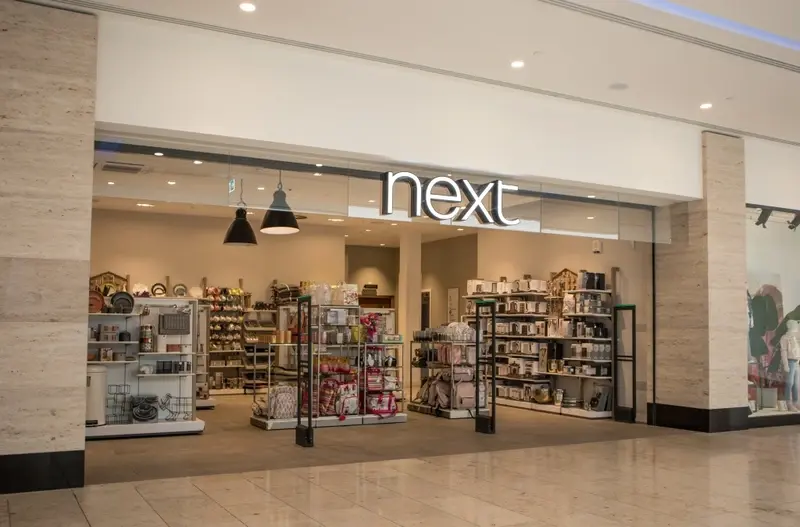
- Retail bellwether’s results beat expectations
- But cautious outlook weighs on sentiment
- Investors question if retailer has gone ex-growth
Resilient clothing and homewares retailer Next (NXT) was the FTSE 100’s biggest faller on Wednesday, its shares cheapening 7.3% to £62.38 as a cautious outlook for the year ahead combined with news of a 2% drop in full price sales in the first 8 weeks weighed on sentiment.
A downbeat outlook overshadowed solid annual results from the retail bellwether led by Lord Wolfson.
Investors were disappointed by the absence of an upgrade to earnings guidance, while management even commented on the question investors are starting to ask - is Next now ex-growth?
NEXT REMAINS RESILIENT
Results for the year to January 2023 from Next came in slightly ahead of the guidance given with its Christmas trading statement at the start of January.
Despite the consumer squeeze, group sales rose 8.4% year-on-year to the best part of £5.15 billion and pre-tax profits ticked up 5.7% to £870 million, ahead of the £859.2 million called for by consensus thanks to the recovery in higher margin retail store sales and a better than expected end of season sale.
DIFFICULT YEAR AHEAD
The FTSE 100 retailer reiterated guidance for a 1.5% sales decline in the current year to January 2024, which translates into pre-tax profits of £795 million.
This implies a 7.6% year-on-year decline and is a smidgeon below the £805 million analysts were previously looking for.
Chairman Michael Roney conceded Next has ‘prepared (and budgeted) for a difficult year’, though he insisted that as long as Next continues to improve its product ranges and ‘relentlessly’ manages costs, whilst also developing new business opportunities, it can ‘lay the foundations for an exceptionally strong business and still deliver healthy profits, cash flow and dividends’.
With cost pressures abating, Next now believes price rises in the second half will be materially lower than initially feared and has also added to its portfolio of investments by buying the Cath Kidston vintage clothing brand from the administrators for £8.5 million.
But as the chart below shows, Next has struggled to grow its earnings per share (EPS) since 2016. And with profits expected to decline this year, the retailer even conceded it would be ‘right for us to question the group’s prospects for longer term growth’, though management believes the retailer ‘can return to higher levels of growth once the cost of living crisis has passed’.
EXPERT VIEWS
Shore Capital has a ‘hold’ rating on Next, dubbing its recent performance as ‘lacklustre’ and pointing out that despite weathering ‘significant shocks’ over the past eight years, including the shift from retail to online, the pandemic and the cost-of-living squeeze, the retailer’s EPS growth rate in the years ahead is ‘expected to be modest. With profits set to decline, we question its prospects for longer-term growth’, said the broker.
Russell Pointon, director of consumer at investment research firm Edison, said that while the retailer has historically ‘tended towards conservatism in its forward guidance and subsequently overdelivered, Next has suggested such outperformance might not be possible in the coming year. Yet improved factory gate prices, reductions in freight costs, and a more benign price inflation for the coming months will be more helpful in the coming year.’
Begbies Traynor’s (BEG:AIM) Julie Palmer stressed that while analysts might be disappointed by the ‘subdued guidance’, Next is still likely to deliver ‘a very credible performance in the face of a consumer confidence crisis that’s causing one of the worst hits to real living standards on record.
‘Next claims it will return to higher levels of growth once the cost of living crisis has passed. As many other high street retailers face the very real prospect of shutting up shop for good, this bastion of UK retail shows that the very best operators are very resilient and still have plenty of runway.’






